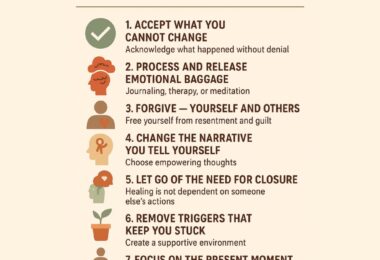A Step-by-Step Guide to Personal Growth: A Practical Guide
Each new year offers a fresh opportunity to grow as a person—and one of the most rewarding ways to do that is by developing a new hobby or skill. Whether you’re looking to reduce stress, expand your creativity, or build a new area of expertise, taking on something new can enhance your life in ways you might not expect. Here’s a step-by-step guide to help you get started and stay consistent throughout the year.
1. Identify Your Interests and Motivations
Before jumping into something new, take a moment to reflect on what genuinely excites you. Are you drawn to creative pursuits like painting or photography? Do you enjoy physical activities like hiking or yoga? Or are you more interested in learning something technical like coding or investing?
Ask yourself:
-
What have I always wanted to try but never made time for?
-
What do I admire in others that I’d like to do myself?
-
What kind of activity would bring me joy or a sense of accomplishment?
Understanding your “why” will help keep you motivated when the novelty wears off.
2. Start Small and Be Realistic
One common mistake is aiming too high too quickly. Instead of committing to mastering the guitar in three months, start by learning a simple song. Small, achievable goals will keep you motivated and reduce the risk of burnout.
Set a manageable schedule. For example:
-
Practice 20 minutes a day
-
Take a weekend class
-
Dedicate one evening a week to your new interest
Remember: consistency beats intensity when forming long-term habits.
3. Use the Right Resources
Thanks to the internet, learning a new hobby or skill has never been easier. Choose the format that works best for you:
-
Online courses (e.g., Coursera, Udemy, Skillshare)
-
YouTube tutorials
-
Books or eBooks
-
Community classes or local workshops
-
Apps for language learning, music, drawing, etc.
Join online forums, Discord groups, or Reddit communities related to your hobby to connect with others on the same journey.
4. Track Your Progress
Keeping track of your growth helps build momentum. Use a journal, app, or calendar to log your practice sessions or completed projects. Celebrate small wins—finishing a sketch, reading a chapter, or cooking a new dish.
You can also document your journey publicly via social media or a blog, which can be a great way to stay accountable and inspire others.
5. Embrace the Beginner Mindset
It’s easy to feel frustrated when progress is slow or your initial efforts don’t meet your expectations. But remember, every expert started as a beginner. Give yourself permission to be imperfect and enjoy the learning process.
Mistakes and failures aren’t setbacks—they’re steps forward.
6. Make It Social (If You Want To)
Learning with others can make the experience more enjoyable and help you stay committed. Join a class, attend meetups, or invite a friend to try the hobby with you. Having a learning buddy can keep things fun and motivating.
7. Stay Flexible and Open-Minded
Sometimes a hobby might not be the right fit, and that’s okay. If something doesn’t excite you after giving it a fair try, it’s perfectly fine to pivot. Trying and eliminating options is still growth.
Your goal isn’t perfection—it’s exploration and self-improvement.
Final Thoughts
Learning a new skill or hobby isn’t just about what you gain—it’s about who you become in the process. As you challenge yourself, build routines, and push beyond your comfort zone, you’ll develop not only a new interest but also resilience, discipline, and confidence.
So whether it’s learning to play the piano, starting a garden, or diving into digital art, let this be the year you say “yes” to something new.
You don’t need to be great to start—but you have to start to be great.









